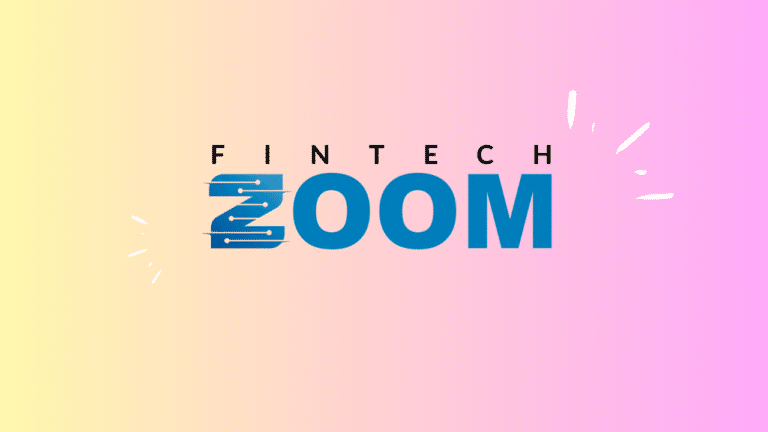What distinguishes a SaaS platform from regular software applications

SaaS has become the most popular platform that delivers all kinds of software application anytime, anywhere over the internet and guarantees improved data processing capacity. It is far better in performance and operations than regular software applications.
If you want to know more in-depth on: What distinguishes a SaaS platform from regular software applications, you have arrived at the right place.
Software as a Service, abbreviated as SaaS lets you access various software applications over the internet literally from anywhere. There is no need to install or maintain the software. You can access SaaS via internet. On the other hand, regular software applications have to be installed on the computer first of all.
In addition, SaaS offerings remain hosted in the cloud and then get delivered directly to the user. Its operations look similar if we have used IaaS and PaaS. Below we have mentioned more of the details, you can check them out:
The Differences between SaaS platform and Regular Software
Here we have highlighted a few of the major differences that exist between SaaS platform and regular software:
- Cost: SaaS has a lower upfront cost than regular software. There is no need to buy expensive hardware or costly infrastructure to run SaaS. Rest, the on-going subscription fees of SaaS is more and adds up over time.
- Maintenance: The SaaS users can handle all upgrades and maintenance and this practice ultimately saves a lot of time and resources. A regular and traditional software needs consumes more time and cost in terms of maintenance and upgradation.
- Customization: SaaS is less flexible in terms of customization. If your business has unique workflows, SaaS is not a recommended platform to be opted. Traditional softwares are easy to customize and meet the needs of businesses with unique workflows.
- Security: SaaS guarantees security of the user’s personal data. This respective platform has invested heavily in strict data protection and security measures which is a plus.
- Integration: It is challenging to integrate SaaS with other systems. Traditional softwares remain more convenient to integrate.
- Accessibility: You can SaaS anywhere, anytime with an internet connection. If your business is of remote type, it is the best platform to be adopted. Traditional software needs virtual private networks.
- Scalability: It is easy to scale up or down SaaS. On the other hand, regular or traditional software need additional infrastructure for scalability.
- Training: The interface of SaaS is user-friendly. It does not need extensive training for getting used to.
- Licensing: With SaaS, you have to pay a specific subscription fees. Traditional software requires licensing.
So, what’s the bottom line? SaaS offers multiple benefits. It has a lower upfront cost, remains easier to scale and looks hassle-free to maintain and upgrade. Regarding using traditional software, it gives more control of the data and more customization options.
Key Characteristics of SaaS Platform
SaaS possess unique characteristics and here you can go through all details about them:
- SaaS equals ‘’scalability’’! It adapts to all business environments and meets complex needs of large-scale business units. Furthermore, it is the recommended platform if your business requires increased data processing capacity and more storage. You can expand or contract its services depending on your business requirements.
- ‘’Accessibility’’ is another unique characteristic of SaaS. It is the popular and most reliable cloud-based solution that you can access anytime, anywhere via the internet. You can run it on any device, be it a tablet, computer or mobile phone. In addition, its development team is spread across the various geographical locations, which is why accessibility is promised.
- SaaS has a subscription based pricing. Customers pay for the services on a monthly or annual basis. It is assumed to be the cost-effective solution for small-scale and newly setup business units.
- SaaS gets regularly updated; there is no need to install the updates manually. In this way, the user will be benefitted from the latest features leading to top performance and ensuring applications stays secure and protected.
Key characteristics of regular software
- Regular software gives more control over the data. If your business uses in-house software application, they will experience a higher degree of control than using hosted solutions like we have SaaS.
- More customization options are offered. You can customize your data processing needs flexibly.
- No connectivity requirement is needed. Just install the software and it will be ready to get used without internet.
- Regular software runs at the fastest speed. It keeps the performance worthy. SaaS at times runs at a slower speed which is a major downside of it.

Benefits of Using A SaaS Platform
Uncountable benefits are offered to the businesses if they use a SaaS platform. Do you want to know what those advantages are? Please see the details below. The basic ones are accessibility, maintenance, upgrades, deployment, mobility, pricing, security, scalability and pricing.
- First of all, you can access SaaS from any device, anytime and anywhere. The only requirement is to have a fast internet connection. Traditional softwares restrict mobility and accessibility, but here SaaS wins!
- In terms of deployment and managing updates, SaaS is one-step ahead. No worries about managing updates and data security measures. You catch up with high level of uptime ensuring the user accesses the application whenever he wants to.
- Regarding pricing and scalability, SaaS wins! It is a subscription based platform and seems to be cost-effective. No licensing is needed that always turns out to be an expensive upfront cost.
- SaaS has built-in collaboration tools so that its gets easier for the user to share files and documents as well as communicate in real-time.
- Besides, SaaS offer integrations with various software applications and also this includes marketing automation platforms, project management tools and CRMs.
- This respective platform stays secure and compliant and meets all of the industry regulations and standards.
Verdict
Lots of businesses have now turned to the adoption of SaaS platform. With its use, their performance and operations have become more efficient and effective and meets the needs of today’s digital world. Lower upfront cost, hassle-free maintenance and scalability are the prime features of SaaS. It makes sure that your business goals gets best aligned and synched with it.
Moreover, it has made it possible for the businesses to streamline their workflows in an innovative and unique manner. It uses the advanced security measures to protect the data of users. Like, it uses multi-factor authentication, encryption and firewalls to prevent unauthorized access.
FAQs:
Can SaaS applications be accessed offline?
You cannot access SaaS applications offline. You must have a strong internet connection to run this software onto your device.
Are SaaS platforms suitable for all types of businesses?
Yes, SaaS platforms are suitable for all kinds of businesses. Especially if your business is about supplying products to customers, SaaS is the most recommended platform that you should opt for. Businesses with niche applications like email marketing resources must adopt the SaaS model.
Can SaaS applications be customized to fit specific business needs?
To some extent, you can customize the SaaS application to meet the specific needs of your business. They can be integrated with business software applications.
How secure are SaaS platforms in terms of data protection?
SaaS is the 100% secure platform in terms of data security and protection. It ensures and follows robust data security measures and prevents the leakage of data.
Can SaaS applications integrate with existing software systems?
You can integrate SaaS applications with existing software application systems. The process is done using APIs known as application programming interfaces.
Conclusion
That is all the basic details on SaaS platform. You can share with us your comments and feedback if your business is currently using SaaS and how you find it different from the rest of the regular and traditional software applications. Stay tuned!





